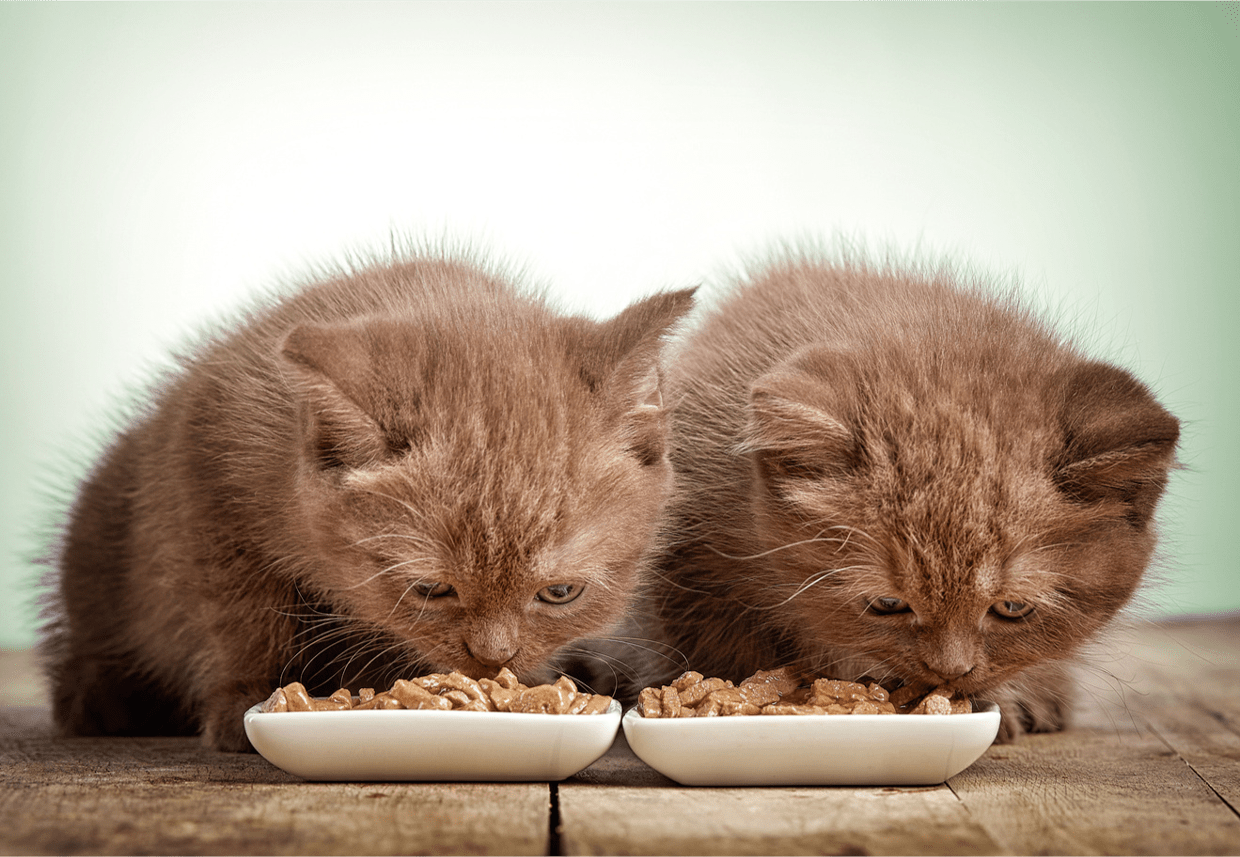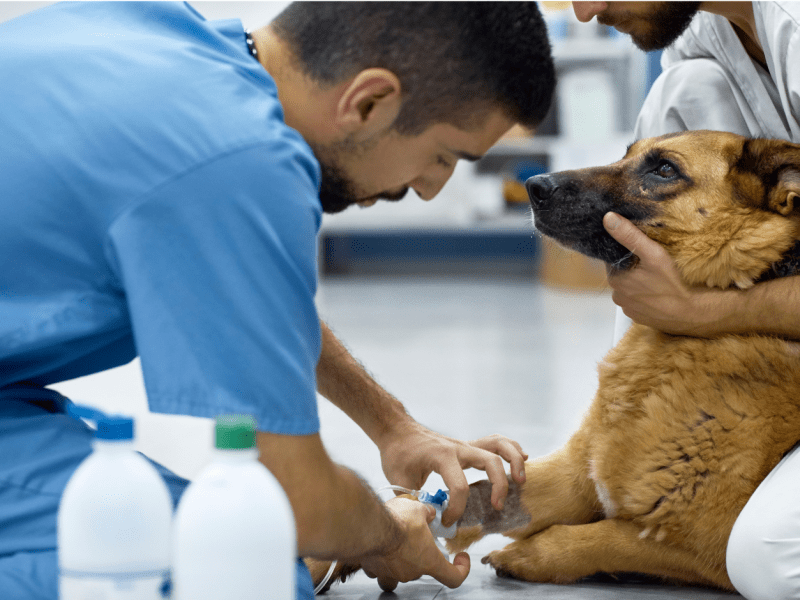‘Your kittens’ nutritional needs change significantly as they progress from the playful, dependent period of early kittenhood to the more independent and active stage of older kittenhood (6 to 12 months).’
It is crucial for their development, growth, and general health to receive proper nourishment. We will go through how to feed older kittens in this post, including the type of food (commercial or homemade), the quantity, the frequency, and the precise amounts of nutritional supplements needed.
Choice of Food: Commercial vs. Homemade
- Commercial Cat Food: Commercial cat food offers convenience and is readily available for feeding older kittens. It is meticulously formulated to cater to the unique nutritional demands of cats at different life stages, including kittens aged 6 to 12 months. When selecting commercial kitten food, select reputable brands that explicitly state suitability for this age group. These products are typically abundant in essential nutrients such as protein, vitamins, and minerals.
- Homemade Cat Food: Making cat food might give you more control over your kitten’s nutrition, but you should proceed cautiously. A veterinarian or feline nutritionist should be consulted to ensure your homemade diet is balanced and adequate. Homemade diets might be dangerous since they might be deficient in vital nutrients or have imbalances.
If you choose to prepare homemade cat food, consider the following guidelines for a balanced diet:
- Protein: Ensure that protein makes up around 40-50% of the diet. Lean meats like chicken, turkey, or fish can be excellent protein sources.
- Carbohydrates: Keep carbohydrates at around 20-30% of the diet. Incorporate whole grains like brown rice or oats.
- Fats: Fats should constitute approximately 20-30% of the diet. Include healthy fats like those found in fish or plant-based oils.
Quantity and Frequency
Determining the right portion size and feeding frequency for older kittens depends on various factors such as their size, activity level, and the specific food chosen. Here are some general guidelines:
- 3 to 4 Meals a Day: Kittens have smaller stomachs and higher energy needs compared to adult cats. Therefore, it’s advisable to feed them multiple times a day.
- Portion Size: The recommended portion size for kittens aged 6 to 12 months is approximately 30-40 grams (1-1.4 ounces) of food per meal, depending on their size and activity level.
For homemade diets, working closely with a veterinarian or nutritionist to determine precise portion sizes tailored to your kitten’s individual requirements is essential.
Nutritional Supplements
While commercial kitten food is formulated to be nutritionally complete, some kittens may benefit from specific supplements in homemade diets. Here are the quantities of essential accessories that may be required daily:
- Omega-3 Fatty Acids: Provide around 100-200 mg of fish oil containing omega-3 fatty acids daily to support brain development and coat health.
- Probiotics: Administer a probiotic supplement with around 1 billion colony-forming units (CFUs) daily to promote digestive health, especially if your kitten has gastrointestinal issues.
- Taurine: Ensure that your kitten receives about 50-100 mg of taurine daily through diet or as a supplement.
- Calcium: Homemade diets should maintain a calcium-phosphorus ratio of approximately 1.2:1. Consult a professional to ensure your kitten gets the appropriate calcium levels.
- Vitamin D: Ensure your kitten receives approximately 200-400 IU of vitamin D daily for proper calcium absorption.
Always consult your veterinarian before introducing any supplements to your kitten’s diet. Over-supplementation can have adverse effects on their health.
Final Verdict
Finally, feeding older kittens (those between the ages of 6 and 12 months) requires paying close attention to their unique dietary requirements. You can choose homemade diets with expert advice or commercial kitten food. Whatever option you choose, provide your growing kittens with good food suited to their needs, balanced nutrients, and reasonable portions (about 30–40 grams per meal).



